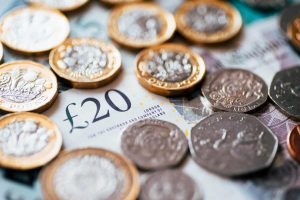Nine hundred quid might not sound enough to start investing. But in today’s digital age, it’s easily enough to get the ball rolling.
A common mistake to avoid in the stock market though is to see it as a get-rich-quick mechanism. Indeed, as daft as it sounds, it’s arguably better to not even think about buying stocks at all.
Confused? Let me explain.
A small stake in a real business
When someone buys shares, say, of Diageo (LSE: DGE) they’re getting a stake in a real business. In Diageo’s case, that’s the global sales of alcohol brands such as Smirnoff, Johnnie Walker, Guinness, Tanqueray and Gordon’s gin. These labels are ubiquitous in bars, restaurants, supermarkets and homes across the UK and beyond.
In its last financial year, Diageo reported an operating profit of nearly $6bn on revenue of $20.2bn. That was slightly less than the year before because the global spirits market has been in a slump due to high inflation and weak consumer spending. Meanwhile, there’s a risk Gen Z is drinking far less.
Consequently, investors have been worried about its business prospects and the share price is down 41% in three years. As a shareholder myself, this hasn’t been a great time.
So what?
This goes to prove that it’s the performance of the underlying company that will decide how the stock performs over time. So investors need to weigh up the risks as well as the opportunities before putting money into a company.
They should ask themselves questions like, does the firm sell timeless products that people love? Does it do so at a healthy profit? In Diageo’s case, the answer is yes to both questions, despite the current weak sales growth.
The second thing investors need to understand is the price they’re paying to invest. Right now, Diageo stock has a forward price-to-earnings (P/E) multiple of 16 for next year. In other words, it is trading at 16 times the forecast earnings for its next financial year.
That looks reasonable to me and suggests the share price could bounce back if this period proves to be a blip. That is, much of the bad news might already be priced into the stock’s valuation. Therefore, I think Diageo could be worth considering as an investment in March.
Invest in businesses, not stocks
My point here is that investment decisions require careful consideration, rather than simply buying a stock on a whim. There’s a real-world business behind every share — ideally a high-quality one. Each has its own strengths, risks, and carries a certain valuation.
Spreading risk
The struggling Diageo share price proves that even an established firm that owns world-class brands isn’t guaranteed to be an automatic winning investment. So I think it’s wise to build a diverse portfolio of shares. That way, a couple of rotten eggs won’t stink out the whole portfolio.
Perhaps that might involve investing £450 into two different stocks each month. After a year, that would result in a portfolio of 24 companies, which is a decent spread.
If someone invested £900 a month and managed to achieve an average 10% annual return, they would end up with a £1m portfolio after just 24 years. Certainly not a bad outcome from scratch!
This post was originally published on Motley Fool






